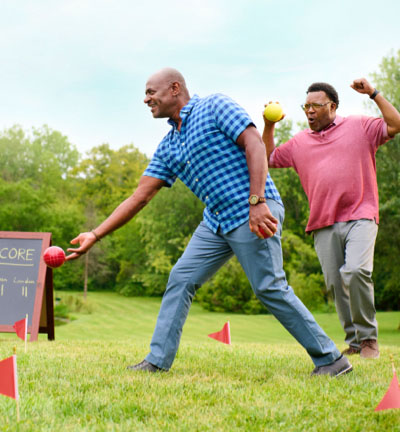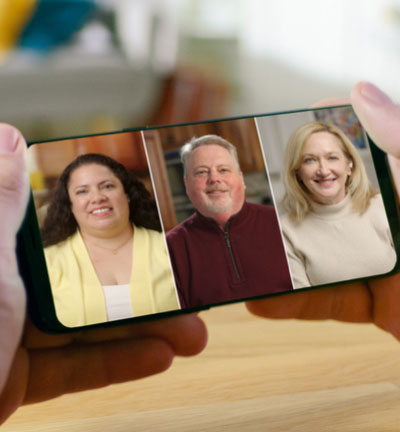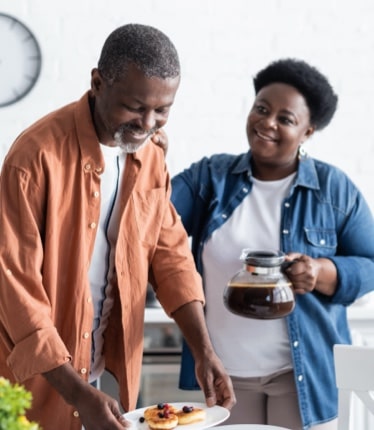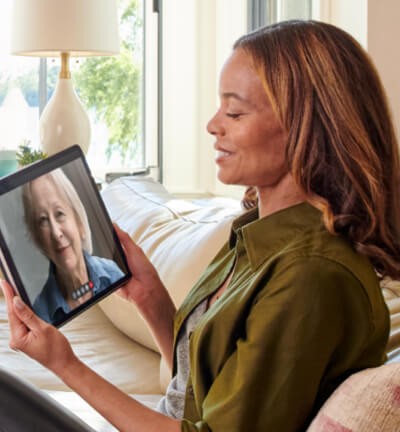Learn helpful tips for traveling with MG and download a packing checklist for your next trip.
The idea of traveling can be both exciting and nerve-racking. Whether you’re newly diagnosed with MG, have lived with MG for a while or care for someone who has it, planning in advance may make traveling easier. To help you feel more prepared for your next trip, we asked people living with MG to share their knowledge and best practices. Learn helpful planning tips from Dawn,* an experienced travel agent, and Alicia,* a frequent flier. Download the packing checklist to help make your next trip smoother and less stressful.
Before your trip
MG treatment considerations
- Check with your doctor before you travel, especially if you’re traveling to a place with restrictions. You may require immunizations or extra medications
- If possible, work with your doctor to plan your treatment schedule around your trip
- If you’re on a self-administered MG treatment, plan to bring extra doses, injection supplies, etc. to ensure you have enough. If you’re traveling for an extended period, your pharmacy can consult with your insurance company about approving a vacation override
Hotels and transportation
- For cruises or international travel, consider using a travel agent who can recommend the most accessible hotel chains or cruise lines. They are usually familiar with the layout of hotels and cruise lines, so they can help you find an ideal room location
- If flying, contact the airline ahead of time to set up assistance and to ask about any special equipment you may need to bring. They offer services including curbside assistance, rides to the gate, wheelchairs and special meals during the flight
- Plan to bring luggage with wheels and try to keep it as light as possible. You may also want to consider sending your baggage ahead of time to limit what you have to carry
Emergency preparedness
- Research and purchase a trip protection plan in the event of emergencies, delays or unexpected cancellations due to MG
- Prepare a travel-sized emergency kit with over-the-counter medicines in case of nausea, headaches, cough, colds, fever, pain or other travel-related illnesses
- Find out where the nearest hospital is located and see if there are doctors who are familiar with MG
- Gather important medical documents including your medical ID card or journal with the following information: medical history, allergies, your doctor’s contact information, your family’s contact information and a list of your current medications
Bring your insurance information including health insurance, medical evacuation insurance, travel health insurance and trip cancellation insurance.
Don’t wait until the last minute. Pack what you can in advance, including all the medications you’ll need. I know, for me, trying clothes on can be very exhausting, so packing ahead of time helps save energy .
While traveling
Saving energy
- Conserve energy as much as you can by using assistance services, hydrating, keeping your luggage light, taking breaks and listening to your body. For everyday tips on saving energy, download the Everyday Energy Savers eBook
- If driving, try to incorporate extra stops in your itinerary in the event you may need to rest
- Don’t be afraid or embarrassed asking for help. You may be surprised how willing others are to lend a hand. Whether it’s a stranger or travel companion, asking for help carrying a bag or looking up directions can add up over the course of a day or week
Staying comfortable and organized
- Ensure that all medications and supplies are TSA-approved and easily accessible in your carry-on bag(s). Avoid putting medicine and supplies in your checked luggage because it could get lost or delayed
- Check the Transportation Security Administration website to see what items are permitted in airports and on airplanes
- Bring comfortable items, such as a neck pillow and travel blanket, in case of flight delays or long car rides
- Pack items in zippered packing cubes to help keep your belongings organized and easier to find
- Wear layers of clothing that can be easily removed in case you get too hot or cold
Set a timer on your phone so you remember when to take the next dose of your medication. This way, you don’t forget to take it even when you’re getting caught up in all the fun.
After your trip
Reflecting and sharing your experience
- Take a moment to reflect on how your trip went and how you felt. Did certain activities or factors affect your MG symptoms? Is there something that could have made your trip easier?
- Think about what you brought with you on your trip. Did you find certain items to be more useful than others? Did you overpack or run out of anything, including medical supplies? If so, add your notes to the packing checklist so you remember it for next time
- Set new goals for your next trip or experience. Were you inspired by something you learned or someone you met? Start planning and talking about your travel goals with your family, friends, loved ones and doctor
Consider sharing feedback directly with the airline, hotel or cruise line so you can reinforce how they supported you or how they could have improved. This feedback can help them learn how to help other travelers with neuromuscular conditions like MG.
















